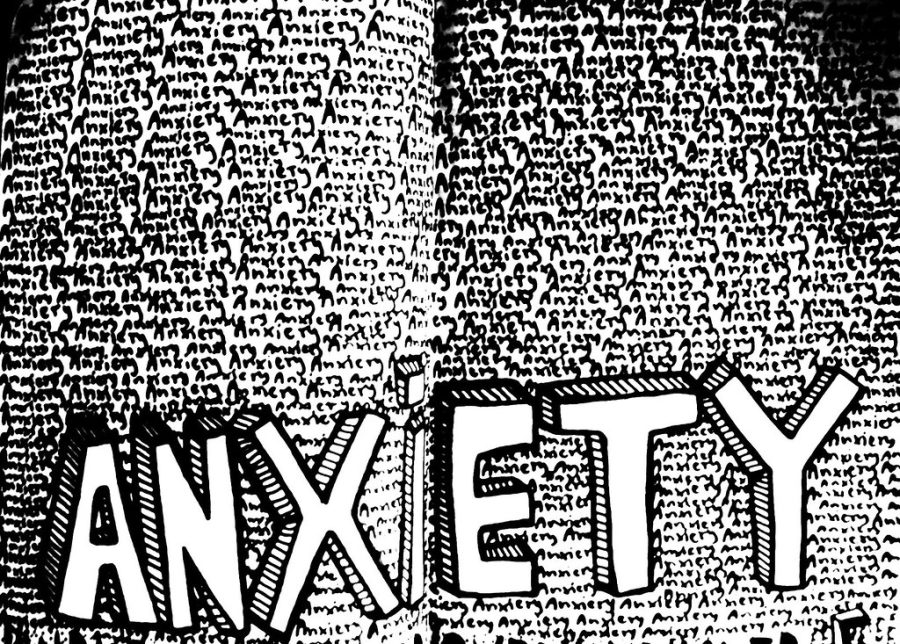The Differences Between Anxiety Attacks, Panic Attacks
Helping with Anxiety, Panic Attacks.
December 5, 2021
Many people across the platform of the Doherty Community don’t know the differences between anxiety and panic attacks. Despite sounding pretty much the same, these two mental events are indeed different from one another.
Anxiety attacks are most commonly linked to stress, and can have specific trigger(s). Anxiety is not a diagnosable situation, and they are much less severe than a panic attack. Anxiety is slow to surface as an attack, growing very slowly when a person feels anxious. A racing heart, or stomach knots are sure physical signs of a probable anxiety attack.
Panic attacks unfortunately do not have any triggers, which is why they can become so dangerous. As a symptom of Panic Disorder, panic attacks are carefully monitored, they have to be, to make sure the person experiencing them is safe. Without any specific triggers, panic attacks can happen whether or not a person is calm or nervous.
Acting as an irrational fear, panic attacks involve strong feelings of terror and distress. This causes the person to feel so terrified that they’re entire body is gripped by fear, and they become sure that death is right in front of them. Even feeling as though they have lost control of their body.
Both anxiety and panic attacks can revolve around fear and nervousness; a racing heart, lightheadedness, chest pain, difficulty breathing, and irrational thinking. Although, with panic attacks, that person may actually think that they are going to die. Anxiety is categorized as a response to specific fear, ranked into, mild, moderate or severe. Panic attacks are categorized as unstoppable, often without any known cause, and even with a trigger, the level of fear can be massive compared to the cause.
These attacks even have different lasting effects. Anxiety is slow to grow, and continues for a while. Panic attacks often start suddenly, lasting usually between 10 and 30 minutes. Sometimes, the symptoms of a panic attack may last longer than just 30 minutes. For some people, their anxiety can develop into a panic attack.
Panic disorder may be caused or signaled by anxiety, “A person who has panic disorder may experience anxiety that they are going to have a panic attack.” MedicalNewsToday says. Of course, this also causes an issue for a person who has panic disorder. Panic attacks with the slight senses of anxiety still has no real help for the panic disorder, “The uncertainty about if or when an attack is going to happen can lead to anxiety between attacks.” MedicalNewsToday mentions. Sometimes, it may just cause more problems for the person.
The American Psychological Association suggests that there may indeed be biological factors that affect or cause panic disorder, but scientists have not “…yet identified a specific maker.” MedicalNewsToday finishes off. The fear of having another panic episode can greatly affect a person’s ability to behave and even function in society. Sadly, people who suffer from panic disorder are more likely to fall into depression, self-harm, attempt suicide, or abuse drugs and alcohol.
However, there is indeed a treatment for panic disorder. Psychotherapy and medications have been used, and successful in helping people with panic disorder. Psychotherapy and medication may be used together, or singularly to help a person with panic disorder, “If medication is necessary, your doctor may prescribe anti-anxiety medications, certain anti-depressants or sometimes certain anticonvulsant drug that also have anti-anxiety properties, or a class of heart medication known as beta-blocker to help prevent or control the episodes in panic disorder.” WedMD offers.
There are so many people willing to help with anxiety, panic attacks, and panic disorder. Anxiety and panic are difficult to overcome. When someone is experiencing anxiety, give them validation, and let them know that what they are nervous about is completely normal. Do not belittle them, or be insensitive to their worries. Their worries may not make any sense to you, but all that they need to know is that you are there for them while they are feeling so vulnerable.
Express your concerns for them, that because they are so nervous, you are there to make them feel better. However, when your loved one’s anxiety begins to hinder their ability to enjoy life, interact at school, work, hang out with friends and family, or causes problems at home, then professional help is needed. If they are opposed to the idea of an appointment with a professional, then just remind them that it is an initial check-up, to see what exactly they may need help with. Maybe it’s some more confidence, or learning how to manage anxiety when it gets to be overwhelming.
Professionals are out there, specifically committed to helping those with Cognitive Behavioural problems. Treatments can vary with anxiety differences in each person, “There are two primary treatments for individuals with anxiety: [One] Cognitive Behavioural Therapy (CBT), which involves learning how to lower anxiety and face distressing situations. [Two] Medication management with antidepressants, which works well on its own but even better when coupled with CBT.” The Hopkins Medicine mentions.
Helping a loved one who is going through CBT or any therapy in general, is by showing your support. Ask if there is anything you can do to help them. Maybe mention that you want to attend the therapy session so that you may learn some skills in order to help them more. They may say no, but it is the thought that counts. If the first therapist isn’t a good fit, or there are problems, try and encourage them to try and find another one. It is never a good idea to keep a wrong therapist around, it doesn’t help your loved one at all.
When someone is going through a panic attack, stay with them, and keep calm. If they take medicine during an attack, then offer to help them take it. Every person differs, don’t make assumptions about what they need, you have to ask. Speak to the person in short and simple sentences, so that they may understand in their moment of need. Move slowly, be as predictable as possible for them, always try to avoid surprising them, that’ll make it worse. Help slow the person’s breathing, either by counting to ten, or taking deep breaths with them.
Simple phrases can encourage them to calm down, “‘You can get through this,’ ‘I am proud of you. Good job.’ ‘Tell me what you need now.’ ‘Concentrate on your breathing. Stay in the present.’ ‘It’s not the place that is bothering you; it’s the thought.’ ‘What you are feeling is scary, but it is not dangerous.”’ HealthLinkBC provides. Sometimes, it is the place that triggers anxiety that may lead to a panic attack. Don’t try and push them too far out of their comfort zone, but don’t enable the problem to make itself worse in their mind. Take baby steps to overcome their fear. A person believing that what they are experiencing during a panic attack is dangerous, will only make things worse.
Doing and saying these things reduces stress, during a panic attack. These definitely prevent the situation from becoming much worse. It helps the person put some control and clarity in such a confusing situation.
Just because panic disorder and panic attacks are considered worse, it does not mean that you are in less need of help. You have an issue, and reaching out for help is what is best for you. Even if it’s through a friend or family member, asking or mentioning the problems you are having, is the best thing for you. If not for yourself, then, for the people who get worried about you. There’s always someone there to help and care for you.





